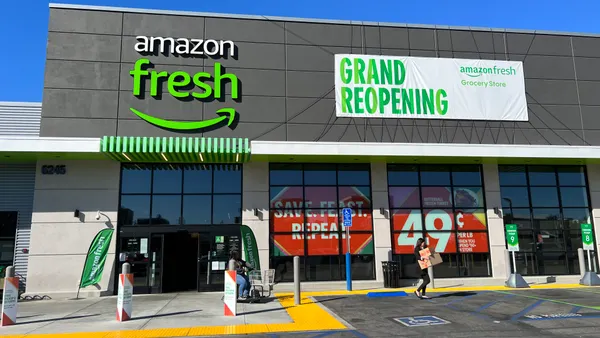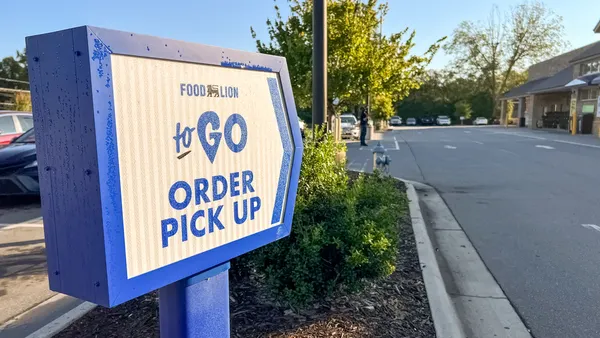Dive Brief:
- Blue Apron is terminating its pilot with Walmart’s Jet.com in the coming weeks to focus on its "core business" of direct-to-consumer sales, president and CEO Linda Findley Kozlowski said on the company's Q2 earnings call.
- Kozlowski said Blue Apron’s serviceable market is approaching $9 billion and identified trends toward fresh food, eating at home and convenience as favorable opportunities for the meal kit company.
- Blue Apron posted a net loss of $7.7 million for Q2, an improvement compared to the $32.8 million loss it posted for the same quarter in 2018. Its subscribers now total 449,000, down 717,000 from last year. The company's Q2 revenue was $119.2 million, a drop from $179.6 million the year prior.
Dive Insight:
Since joining Blue Apron in April, Kozlowski has evaluated the Blue Apron business and concluded that it is not keeping up with "the ever evolving needs and preferences of [its] customers," the CEO stated in the call.
She attributes the distraction, in part, to exploring alternative distribution channels for the past 18 months, including offering meal kits on Jet.com. While the partnership has helped Blue Apron improve its on-demand competencies, Kozlowski said it also posed challenges for inventory management and shrinkage.
An Etsy and Alibaba veteran, Kozlowski's e-commerce stripes are expected to prove useful in helping Blue Apron to find a new foothold in the market, where 100 million Americans are still interested in trying meal kits.
Despite the interest, meal kits reach less than a quarter of online grocery shoppers, according to Packaged Facts' new report, Eating Trends: Cooking & Food Shopping. The report found that meal kits account for only 21.9% of online grocery services used so far in 2019. High-income shoppers looking to save time, consumers with minimal cooking skills, single consumers or small households and seniors are the most promising target consumers for meal kits, according to the research.
One of the biggest ongoing hurdles for meal kit companies is customer churn, as consumers hop from one meal kit service to the next or cancel their subscriptions. Blue Apron has tried several innovative attempts to entice customers, most recently adding Beyond Meat’s plant-based protein alternatives to some of its meal offerings.
Many meal kit makers have engaged in retail partnerships recently, creating retail-ready offerings than can be offered in supermarkets. In-store meal kit users increased by 2.2 million households in 2018 and accounted for 60% of all meal kit user growth. But questions about shelf life, merchandising, and proper portion sizing are major challenges that could have meal kit companies parting ways with retailers down the road.












